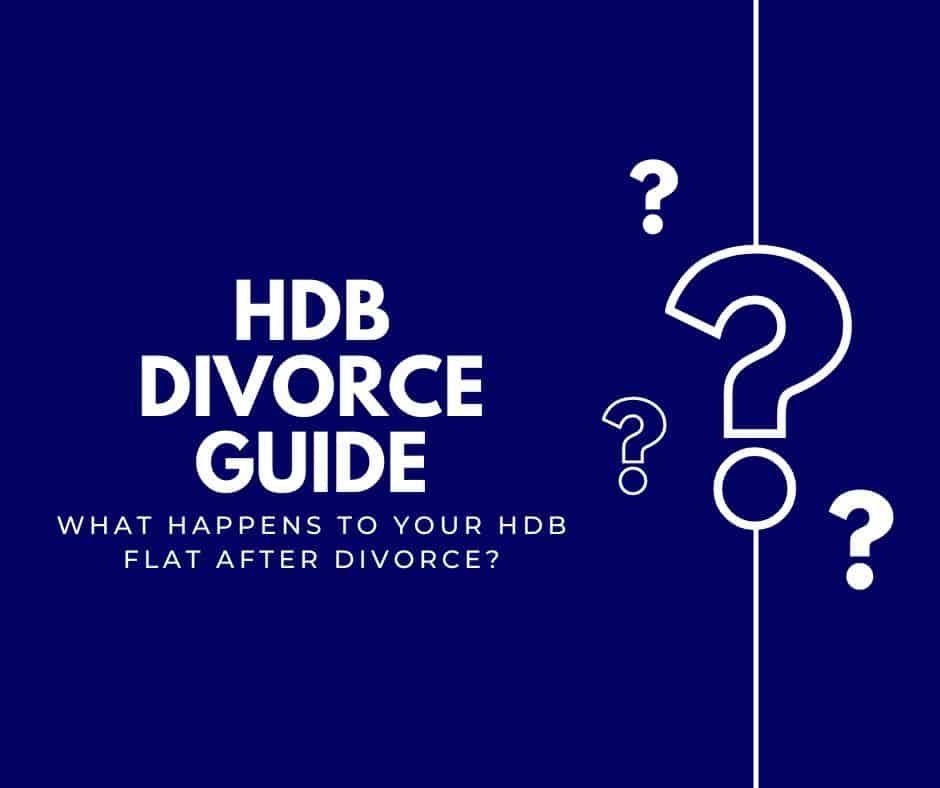
During a divorce or annulment, several assets will be divided amongst you and your spouse.
However, what happens to your HDB flat? How will it be divided?
This depends on whether your flat is considered a matrimonial asset and whether you and your spouse can come into an agreement with regard to its ownership.
Let our HDB Divorce Guide helps you.
How do you know if your flat is a Matrimonial Asset?
For starters, if your HDB flat was acquired by either you or you and your spouse after the date of marriage, it can be considered a matrimonial asset.
However, if the HDB flat was acquired by one party before the marriage but:
- is subsequently enjoyed as a matrimonial home or
- is substantially improved during the marriage,
It can be considered a matrimonial asset.
You can find out more of this under section 112(10) of the Women’s Charter.
How is your HDB flat going to be divided after divorce?
Option 1: You and your spouse agree on what should happen to the flat after the divorce
You and your spouse both agree on what should happen to the property after the divorce. One spouse may agree to transfer their interest in the flat to the other to allow him/her to keep the flat.
Alternatively, you and your spouse can sell the flat and split the sale proceeds in a certain proportion.
This decision will be recorded in a court judgement before the divorce is finalised.
However, if you and your spouse are unable to come to an agreement, this is where option 2 comes in; the Court will then decide on your behalf.
Option 2: The Court decides on what will happen to the HDB flat after the divorce
If your HDB flat is considered a matrimonial asset, the court will decide on division – that is whether the flat should be sold or retained and if so, who should retain it.
This decision will be based on a number of factors such as these in section 112(2) of the Women’s Charter:
| ( a ) | the extent of the contributions made by each party in money, property or work towards acquiring, improving or maintaining the matrimonial assets; |
| ( b ) | any debt owing or obligation incurred or undertaken by either party for their joint benefit or for the benefit of any child of the marriage; |
| ( c ) | the needs of the children (if any) of the marriage; |
| ( d ) | the extent of the contributions made by each party to the welfare of the family, including looking after the home or caring for the family or any aged or infirm relative or dependant of either party; |
| ( e ) | any agreement between the parties with respect to the ownership and division of the matrimonial assets made in contemplation of divorce; |
| ( f ) | any period of rent-free occupation or other benefit enjoyed by one party in the matrimonial home to the exclusion of the other party; |
| ( g ) | the giving of assistance or support by one party to the other party (whether or not of a material kind), including the giving of assistance or support which aids the other party in the carrying on of his or her occupation or business; and |
| ( h ) | the matters referred to in section 114(1) so far as they are relevant. |
This list is not exhaustive and the Court will take all matters into account when deciding the outcome of your flat. The Court will decide based on what is just and equitable.
If the outcome is that you are entitled to the flat, can you keep it?
Short answer: Not necessarily.
Long answer:
It does not necessarily mean that you can keep the flat because there are certain HDB conditions that needs to be fulfilled in order for you to keep the flat.
These are some of the eligibility conditions that the HDB has set:
Condition 1: You have care and control of your children
If you have care and control over your children, you are able to keep the flat. However, you must have the financial ability to take over the payment of the bank loan for the HDB flat.
Condition 2: You are eligible under the Single Singapore Citizen Scheme
If you and do not have children from the marriage, but wish to keep the flat, you can do so under the Single Singaporean Citizen (SSC) scheme if:
- You are a Singaporean
- You are at least 35 years old
- Your matrimonial flat is a resale flat purchased from the open market without CPF Housing Grant for family
If your matrimonial flat is bought directly from HDB or is a resale flat with the CPF Housing Grant for Family, the 5-year Minimum Occupation Period (MOP) must be satisfied in order to retain the flat.
If you cannot satisfy the MOP, you can include another person to retain the flat with. However, this is subject to HDB’s requirements.
What if you are unable to meet any of the conditions?
If you are unable to fulfil any of the conditions mentioned in this HDB Divorce Guide, you may have to dispose or even surrender the HDB flat upon the divorce.
Before deciding to retain the HDB flat, you should speak with an HDB officer in the HDB Branch office to check on whether you satisfy the requirements of HDB rules first.
Why You Should Engage A Lawyer
Divorce can be a complicated and messy affair. Even with our HDB Divorce Guide, it can still be a stressful and time comsuming event for you. An experienced lawyer can give you the proper advice and help you draft all the required documentation.
With expert guidance in drafting the consent order on division of the HDB flat, you will not have the problem of going back to Court for a variation of the order in the event the HDB does not approve of your agreement on the division of HDB flat with your spouse.
If you want to find out more about divorce in Singapore, you can check out the resources by Family Justice Courts. For more information about HDB support for divorced parents, find out more here.
Do you need an experienced divorce lawyer to help you? Contact us today through our enquiry form.

Ng Pui Khim is a senior lawyer with over 20 years of private practice experience focusing on divorces (family and matrimonial law), real estate (conveyancing practice), wills and succession law.
All rights reserved. Any information of a legal nature in this website is given in good faith and has been derived from resources believed to be reliable and accurate. The author of the information contained herein this website does not give any warranty or accept any responsibility arising in any way, including by reason of negligence for any errors or omissions herein. Readers should seek independent legal advice
